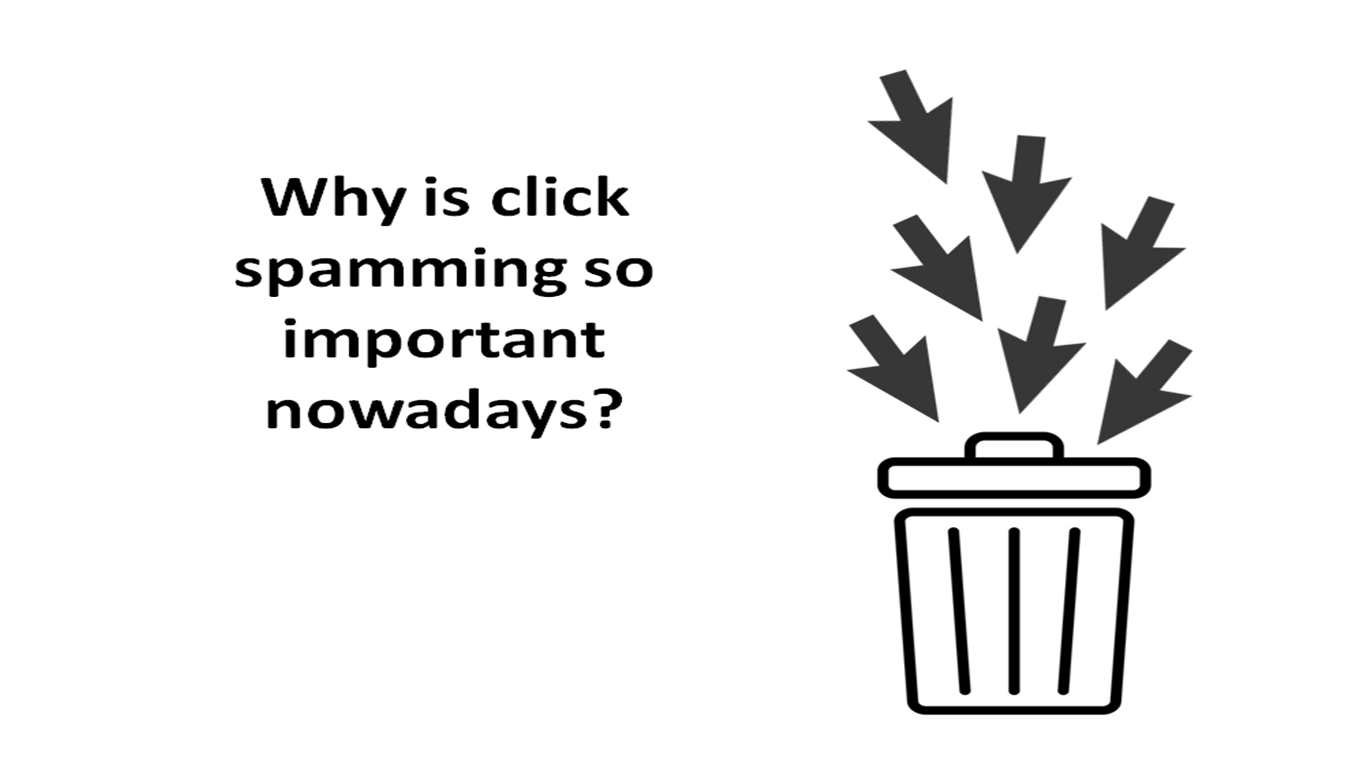Why is click spamming so important nowadays?

source: own elaboration
Click spamming is certainly a serious problem in modern online marketing. It doesn’t only apply to pay per click model, but various expressions of potential customers' activity often desired by advertisers. If fraud occurs in this area, the funds invested by the advertiser will be wasted and the message won’t reach potential customers. So it is not a purely financial threat. Below we will describe why are various kinds of click spamming such an important topic today.
Click spamming applies to various forms of online marketing.
Online marketing is currently the most frequently chosen type of advertisement. A significant part of it is advertising on search engines - such as Google, which are based on paid clicks. But Google Ads isn’t the only channel where ads are being click spammed. We also deal with this problem in case of ads placed on social media and in commonly used affiliate marketing, where a fraud publisher can even steal from an advertiser. Click farms were created to generate artificial clicks, but they have evolved over time, extending their activities to social media. Therefore, they also offer acquisition of artificial shares, likes, followers and other forms of user activity. If this type of service was ordered by our competitor, he may use such false statistics and undermine the good reputation of our brand. In recent years, one of the most popular types of online marketing is video advertising, in which the advertiser pays for playing the video. So it shouldn't be surprising that some click farms have expanded their offer with artificial video views. But click farms are not the only threat. Fake accounts created by fraudsters can be prepared in such a way that they meet the criteria of the recipients specified in the advertiser's campaign, so you can waste part of your marketing budgets.
Regardless of the industry and the size of the enterprise - any company may fall victim of click spamming.
One of the biggest dangers of click spamming is that this problem affects all businesses regardless of industry and size. Large companies may fall victim of massive click spamming attacks - they are primarily threatened by click farms offering their services to their competitors. BOTS, so special programs that automatically click various forms of advertising, are another danger. Of course, these methods can also be used for medium-sized enterprises. Due to the fact that they often use affiliate marketing, fraudulent publishers and dishonest affiliate partner are also a threat to them (although they are also dangerous to large and small companies). The effect of their action is not only much weaker effectiveness of the advertising campaign - they can literally rob the advertiser, forcing him to pay for false manifestations of customer activity. Small businesses are also at risk of fraud - in this case, click spamming is most often caused by dishonest competitors. Small, local businesses often fight for customers, which can lead competitor to unfair practices. They can click spam on their own, and because smaller companies usually have small marketing budgets, clicking them of can be relatively easy.
Click spamming causes not only financial losses.
Regardless of whether the scammer is acting alone or if we are dealing with a company providing click spamming services - the effects of their activities go far beyond the financial area. First of all, these types of scams can destroy the entire carefully planned advertising campaign. If someone click spam our ads, our message won't reach the final recipient, so we lose much more than just financial resources - the time of our employees, potential clients, whom we could acquire, and sometimes even the chance to use a certain moment in time (like holidays, seasons, launching a new product, etc.). Currently, when so much importance is assigned to real time marketing, a quick response to what is happening in company environment can be crucial. The scammer may take away such an opportunity from the advertiser. It can also affect the good name of our brand. Sometimes, especially during campaigns conducted on social media, the purpose of click spamming is to influence how a given company is perceived by customers. The competition can buy huge amounts of negative comments, opinions or reactions, or make it appear that advertiser is the one who "ordered" false likes, shares or video views. Lastly, click spamming in Google Ads may aim to overbid keywords used by the company. Such practices are often used by counterfeit manufacturers and their purpose is to impersonate a given brand.
Detecting that someone is click spamming our ads is not always easy.
Regardless of whether it is a private person or an organized click farm acting on behalf of external clients - detection of fraud may not be easy. If the scammer himself is click spamming his competition ads - he can use different devices or often change the IP address, and because his behavior on the site won’t be automatic, some algorithms designed to detect fake clicks will ignore him. Large click farms use other safeguards - they are located in third world countries or use the services of employees located all over the world, which significantly hinders their traceability. Finally - BOTs, even though they work in an automated way, they have become more and more advanced. Their creators teach them to imitate human behavior in such a way that algorithms that track false traffic won't detect them.
We have repeatedly mentioned how serious problem for modern online marketing is click spamming. However, many companies still ignore this threat and don't protect themselves against such dishonest practices. Protecting your advertising campaigns against fraud is very important and doesn't have to be expensive. If you would like to learn more about what you can do to prevent click spamming your ads - contact us - we will be happy to share our experience with you.

